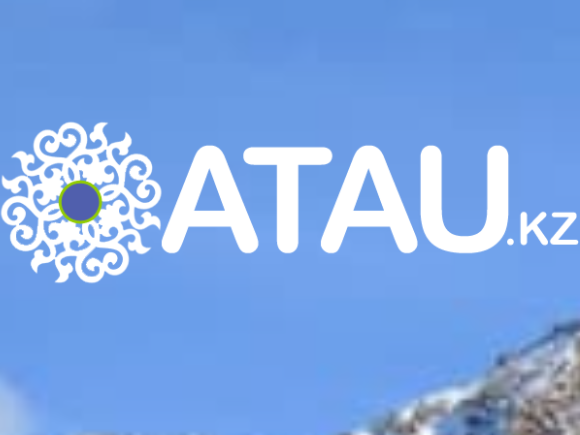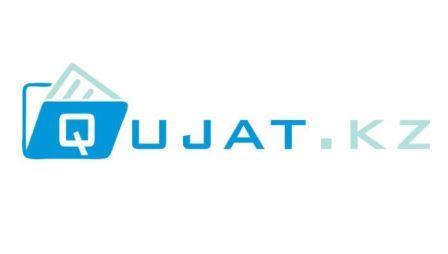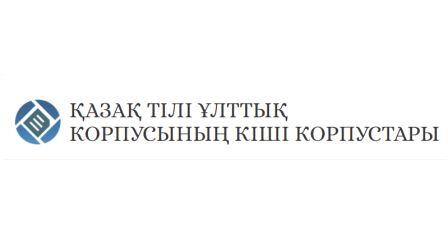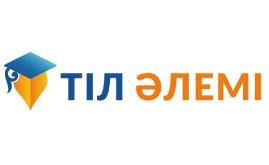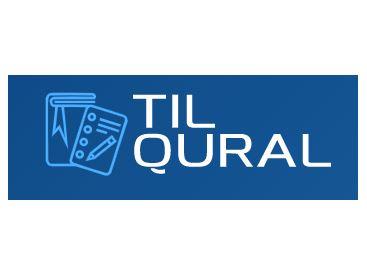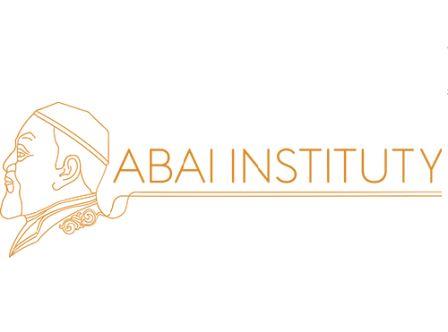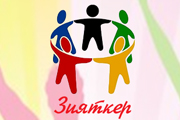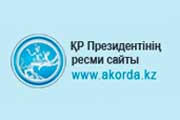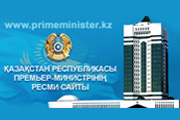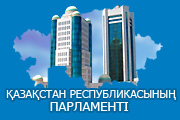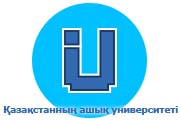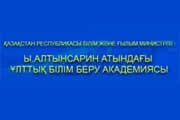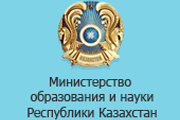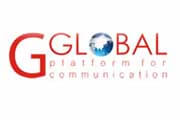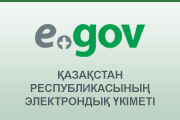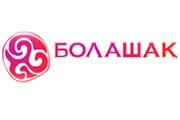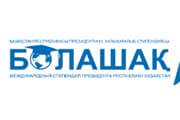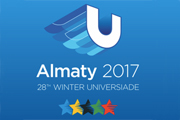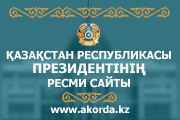Department of Music Education
Educational programs
EDUCATIONAL PROGRAM 6B01403 «TRAINING TEACHERS OF MUSIC»
Education Area Code and Classification: 6B01 Pedagogical Sciences
Code and classification of training areas: 6B014 Teacher training by subject specialization of general development
Awarded degree: Bachelor of Education in the educational program 6B01403
«Training teachers of music»
Тype of program: Bachelor, 6 level NRC / IQF / ISCE
Total credits: 240 Academic credits / 240 ECTS
The working group on the development of the educational program: Dosbaganbetova А., Karsуbaeva A., Les M., Balabekova A, Iskakova L, Dosbaganbetova R, Seylbekova K., Aidarbekova R., Zholdasova A., Atabekova A., Elzhanova G., Toltebay Zh., Zhaksylykov M., Sapar A.
Еxperts: Farhad Shidfar, Omirbayeva G., Umarova B.
SHEET OF THE EDUCATIONAL PROGRAM
Scope of professional activity of graduates Bachelor of ЕP "Music teacher training" carries out his professional activities in the field of education.
The objects of professional activity of graduates: basic and specialized schools, specialized schools, the organization of technical and vocational post-secondary education.
Types of professional activity of graduates: training, bringing up, methodical, research, social and communicative.
Objectives of professional activity of graduates
Training:
- training and development of students;
- the organization of educational process in professional activities;
- design and management of the pedagogical process;
- diagnosis, correction and prediction of the results of educational activities.
Educative:
- the involvement of students in the system of social values;
- implementation of educational work in accordance with the laws, the laws, the principles of the educational process, educational mechanisms;
- planning extracurricular educational work;
- addressing specific educational objectives;
- the use of various forms and methods of training and education of students in extracurricular activities;
- establishment of links with groups of students, subject teachers and parents.
Metgodical:
- implementation of methodological support of the educational process;
- planning the content of education at different levels;
- identification of methods for the organization and implementation of the educational process;
- the use of new educational technologies in the learning process.
Research:
- study the level of mastering the content of education, the study of the educational environment;
- the study of scientific literature;
- analysis and generalization of the advanced pedagogical experience in the field of education;
- conducting of pedagogical experiment, the introduction of its results in the educational process.
Social and communicative:
- the implementation of cooperation with the professional community and all interested education stakeholders;
- the formation of a multicultural identity;
- creation of favorable conditions for education and development of students, providing them with educational support.
- creation of favorable conditions for education and development of students, providing them with educational support.
THE MODEL OF A GRADUATE
1. Subject knowledge: has a deep and complete understanding of their subject area, applies knowledge in professional activities
2. Organizational and methodological skills: uses innovative technologies in planning, organization and management of professional activities, shows critical thinking and creativity in solving complex problems.
3. Research skills: conducts scientific and methodological work, introduces students to research work.
4. Leadership and entrepreneurial skills: able to work in a team, is active in the process of renewal of society.
5. Cultural competence: has the ability to be a cultural and tolerant citizen of his country.
6. The ability to learn throughout life: coordinating their talents and interests in accordance with the needs of society.
7. Information skills: understands the essence of the information society, uses ICT in professional activities.
EXPECTED RESULTS TRAINING ON EDUCATIONAL PROGRAMS
Learning outcomes of EP: Upon successful completion of this EP student must:
• LO1 - demonstrate vocal conductor's skills and development of playing musical instruments in the implementation of creative ideas based on knowledge;
• LO2 - apply knowledge in practice, based on systematic creative thinking in conclusions and statements in music research, the principles of academic integrity and academic writing;
• LO3 - determine the structure of the basic concepts and tools for the study of the subject attract students to think critically, creatively and joint problem solving;
• LO4 - analyze ways of solving professional problems based on music and creative art in the cognitive, performing and collective research;
• LO5 - use a criteria-based assessment and diagnosis of learning achievements In accordance with the chosen objectives in the subject;
• LO6 - demonstrate sociability and creativity in leadership and teamwork to achieve common goals and increase the creative professional level;
• LO7 - use of ICT and digital educational resources in teaching the subject;
• LO8 - use pedagogical innovative technologies in accordance with the purposes of training and education, the expected results and the physiological characteristics of the students;
• LO9 - integrate interdisciplinary knowledge in shaping the personality development of students, learning throughout life;
• LO10 - evaluate creative solutions to problems that arise in the application of technologies and inclusive education in situations of conflict.
Information about the disciplines
Methods of scientific research - During the research, based on the modern achievements of domestic and foreign scientists, it allows you to gain knowledge on the basic theoretical rules, technologies, operations, practical methods and techniques of conducting scientific research and master scientific research, get informed effective solutions using information technology, choosing the topic of scientific research, scientific search, analysis, experiment, data processing.
Fundamentals of law and anti-corruption culture - Considered the basic concepts and links of the legal system and legislation of the Republic of Kazakhstan, state and constitutional construction, the foundations of anti-corruption culture, the principles of academic integrity
Economics and fundamentals of entrepreneurship - The basic concepts of economic and business sectors and the links between them are considered. The methods and techniques of analysis and application of legislative and conceptual documents in mastering entrepreneurial, leadership and innovative skills are described.
Ecology and life safety - The discipline provides knowledge about the observation and prediction of changes in the state of the environment. Examines the causes of changes in natural stability, unity and structure of the natural system and measures to protect the environment. He gets acquainted with the work of the civil defense organization, the peculiarities of lesions and toxic substances. The ways of consolidating the place and role of discipline in real life, integration of interdisciplinary knowledge are described.
Physiological development of schoolchildren - On the basis of the laws of physiological development of pupils deals with the anatomical and physiological characteristics of children and adolescents, identity formation, preservation and promotion of health. Describes methods and techniques to identify and develop students' abilities, modeling in cognitive research, study of the role and place of the object in a particular life, the integration of multi-disciplinary knowledge, the way of information culture.
Age psychology - In the process of teaching the discipline using various methods of psychological research, age-related features of the mental development of school-age children are identified and considered. And also methods of formation of mental properties of pupils of initial classes, teenagers and youthful age are defined.
Pedagogy and methodology of educational work - The knowledge and understanding of the educational process based on metasubject ideas of pedagogical science, the use of forms, methods, means of educational work in practice are considered.
Special pedagogical technologies in inclusive education - It is aimed at expanding knowledge about the methods and forms, principles and factors of implementation in educational institutions in the implementation of inclusive education programs, psychological and pedagogical problems of teaching and development of students in the conditions of inclusion, the organization of the educational environment; design of professional development and individual educational trajectory; modern technologies of development of GEP; features of practical activities of the teacher in the space of inclusion.
Modern assessment technologies - Examines new approaches to the study and teaching of music, approaches to differentiated assessment, the basics of diagnostics, the basics of school education and management and self-assessment from the point of view of critical thinking using information and communication technologies in education and training in accordance with age characteristics.
Мethods of teaching music - Considering features of a subject, planning of educational disciplines, classification of methods of training, the contents, types, methods of conducting a lesson of music on the updated program, communicative abilities develop. It is characterized by the integration of art and dance arts with the subject of music, through the use of special digital educational resources and ICT in music lessons.
Individual methods of teaching music - In independent teaching of music, students study innovative pedagogical technologies, integrating them with literature, history, and mathematics, taking into account the physiological age characteristics of students. In addition, it forms theoretical and methodological, musical and performing, versatile, research knowledge and skills of organizing and conducting extracurricular musical educational work, instills creative search.
Innovative and computer-based music teaching technologies - At school, music lessons teach the techniques of using pedagogical innovative technologies, the basics of using electronic music libraries, music library, computer programs Audacity, Soundation, Windows Movie maker, "film studio", the manifestation of creativity and communication in group work.
Theory of music and solfeggio І - Considers the development of the correct readings of the methods with a sheet, fixed assets of music (sound mode, tone, interval) and musical-theoretical terminology, using the musical and theoretical knowledge at solfedzhirovanii and using digital educational resources and ICT in systematic training
Ethnosolfeggio and harmony - Oral – provides for the use of forms of oral work that increase the ability to traditional thinking, hearing and memory preservation, musical-poetic language of singing and the creative method of presenting it to the environment with the development of the degree of mastering the laws of thinking.
The history of music and art forms - It provides an idea of the image of the world integrity through the integration of other types of art and musical art (fine arts, choreography, poetry), the stages of formation, development, prosperity of professional musical art, the development of knowledge about the history of music and folklore, methods of studying the stylistic differences of music of different centuries.
Choir and оrchestra І - It teaches us not to deviate from his party in the group work, listen to other voices while singing in choral composition. Determines the sense of musical harmony in the orchestra, using the data obtained in constant training in harmony, sight reading in order to increase the professional level of performance.
Choir and оrchestra ІІ - Examines the performance and sound features, the instrumental composition of the orchestra, the reading of a given part, voice features, the basics of the difference between male and female voices in the choir. Characterizes the manifestation of creative activity in teamwork based on the knowledge gained.
Choir and оrchestra ІІІ - It teaches us not to deviate from his party in the group work, listen to other voices while singing in choral composition. Determines the sense of musical harmony in the orchestra, using the data obtained in constant training in harmony, sight reading in order to increase the professional level of performance.
Choir and оrchestra ІV - Teaches the use of pedagogical innovative technologies and work in a choral group and orchestra, the correct distribution of voices and musical instruments, taking into account the age-related physiological characteristics of children, using information resources in working with the choir and orchestra. Directs the use of modern ideas of conductors at concerts in order to improve the professional creative level of the choir and orchestra.
Specific training І - Considered instrumental and conductor's performances, the basics of playing scales and small pieces within a single octave, just the size, the theory of the amplitudes of orchestrating the analysis of the musical text. Formed gaming skills on special instruments, piano and conducting general based on the integration of individual training.
Specific training ІІ - Comprehensively examines the instrumental and conducting training, the basics of playing scales, small compositions, the basics of conducting, solfedzhirovanie, analysis (determination of the keys, the size of the work). Form the basis of individual training on a special instrument, conducting.
Vocal and conducting work I - It teaches the basics of voice acting, proper breathing, expressive performance of a work in conducting, and the ability to distinguish the Performing features of the work. It involves performing small vocalisations, folk songs, conducting works for children's, women's, and men's choirs written for 2-3 voices.
Vocal and conducting work II - It provides for carrying sound, working with a band, learning school songs, performing musical works to improve the level of creativity in choral conducting, conducting measurements 5/4, 5/8 to "5"or "2", using the staccato method.
Vocal and conducting work IІI - Considering timbre, harmonic and melodic hearing in creative work, forming a musical performance skills, self-interpretation of the work, the work of the repertory. Teaches conducting in pace allegro, vivo, stroke marcato, six-year-old size (6/4, 6/8) - to "6" and "2".
Instrumental work I - Teaches you to work on an instrument with a sentence, phrase, mixed strokes, to put the finger correctly, to perform the work expressively, to distinguish the performing features of the work. The selected application involves familiarization with the structure, setting of the instrument, sound production, performing light exercises.
Instrumental work II - Develop the technique of performing on the instrument, master complex strokes, learn to analyze the work independently, know the specifics of performing on the selected additional instrument, feel ensemble harmony in the performance of the accompaniment, learn to listen to the accompanist, work with the repertoire.
Instrumental work III - Based on the accumulated musical material (statuses, compositions, songs, etc.), it provides for methods of developing performing techniques, instilling them in group work. Creative presentation of their work using musical artistic means, musical instruments, evaluation in accordance with the criteria and improvement of their performance technique.
Performing work - To show artistic play, technical capabilities of production, taking into account the performance characteristics, the style of performing complex works, to master singing in high positions in vocal conducting, to know the technical features of singing and conducting complex works, to show sound transmission, creativity and communication in working in a group.
Instrmental skill - Independent selection of repertoire, taking into account the technical and technical characteristics of the work, improving artistry, mastering stage culture, performing instrumental compositions, revealing the artistic play and creative style of the work, the ability to work in a group, teach business skills.
Vocal skills - Teaches the Basic Rules of singing breathing, vocal techniques of the voice, methods of conscious setting of resonators, articulation apparatus and range expansion works. It is aimed at strengthening vocal and pedagogical knowledge, teaching methods of academic, traditional, pop singing styles, and instilling interest in creative work.
Organization of cultural events - It involves planning thematic and concert events, writing a script, creating a concert program, choosing a repertoire, organizing presenters and participants, conducting preparatory work with them, teaching stage culture and artistry, and effectively organizing leisure activities.
Methods of instrumental performance - It provides for the classification of instruments, features of performing methods, methods of teaching playing the instrument, performing work by the method of practicing gamma, arpeggios, chords in the development of technical skills. They include works of large forms in the repertoire, teach them to play in an ensemble, develop their hearing and perform the text of a written note on an instrument.
Methods of voice production - On the basis of vocal and theoretical knowledge in voice-setting, it teaches age-related features of voice development, correct voice setting when working with the "apparatus", choosing a repertoire according to the range, transmitting the content of the song to the listener, taking into account the pure, physiological features of intonation, clear diction, the basics of singing in a compact closed voice.
Conducting methods - The analysis of the achievements of the best choral groups and great choirs, historical information about choral performance in general, actual problems of choral conducting, and the tasks assigned to the conductor as a performer is considered. It provides for training in working with choral scores and mastering the necessary skills and skills of using the conducting widow in practical work on conducting techniques.



